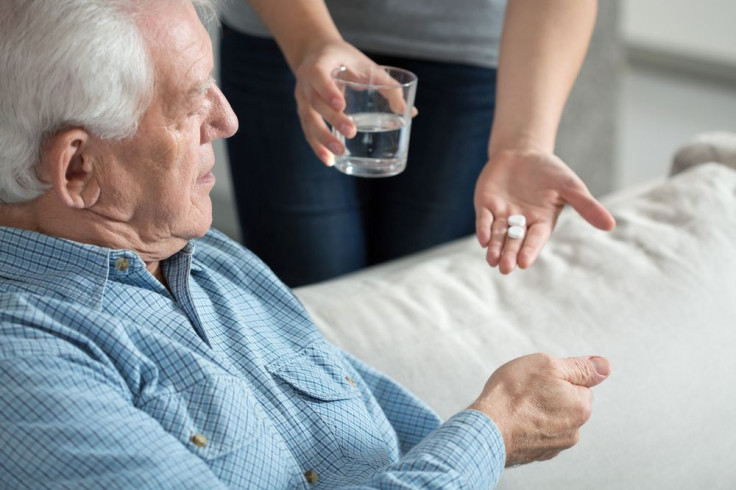Antipsychotic Drugs Among The Elderly Raise Death Risk In Dementia Patients

What many people do not expect from an Alzheimer’s patient is that the disease may cause hallucinations as dramatic as any encountered during an experiment with LSD or another hallucinogenic drug. To treat these strange delusions, well-meaning doctors often prescribe antipsychotic drugs. However, a new study suggests the pills meant to quell behavior problems in these patients also hastens their death.
“The decision to use these medications is generally in response to profoundly distressing and potentially dangerous behaviors of patients,” wrote the authors. “Prescribing a medication that increases mortality risk seems contrary to the tenet ‘first, do no harm,’ yet for patients who pose a danger to themselves and others and are in profound distress, use of such medications may still be appropriate.”
Dosing The Elderly
Whether the patient is a school child or someone in her 80s, “drugging away” a behavioral problem is sometimes controversial, always questionable. For dementia patients, symptoms frequently include agitation, aggression, hallucinations, and even psychosis. Though people suffering from Alzheimer’s (and their families) experience great difficulty, many doctors argue that non-pharmacologic solutions are more effective than drugs when trying to eliminate problem behavior. One team of researchers recommends five strategies to achieve better conduct in a dementia patient:
- Providing education for the caregiver
- Enhancing effective communication between caregiver and patient
- Creating meaningful activities for the patient
- Simplifying tasks and establishing structured routines
- Ensuring safety while simplifying (and enhancing) a patient’s environment
Importantly, caregivers need to remember that minding an Alzheimer's patient is a lot like taking care of a baby — neither can express in words what is bothering them. Often a hidden medical issue, such as constipation, dehydration, a urinary tract infection, pain, or even a drug interaction, may be the root cause of bad behavior in the elderly.
For the current study, researchers from University of Michigan Medical School and the Veterans Administration looked into de-identified medical information taken from national VA registries. The data included information from nearly 91,000 American veterans over the age of 65 with dementia. Specifically, the researchers compared patients taking a single psychiatric medication with similar "matched" patient who didn't take drugs.
Crunching the numbers, the researchers arrived at surprising conclusions. Veterans taking antipsychotics had a higher risk of death than previous studies indicated. Among Haloperidol users, 20.7 percent died within the 180-day observation period; in fact, patients prescribed this drug had a 3.8 percent greater risk of dying than non-users. Risk of death seen with valproic acid (brand names include Depakote, Epilim, and Valparin) was similar to the antipsychotics. Antidepressants showed a lower mortality risk than antipsychotics or valproic acid, but ranged higher than rates of death for people taking no psychiatric medications.
Interestingly, compared to other medication groups, those prescribed Haloperidol included a higher proportion of unmarried patients and African-American patients.
When treating behavior problems in dementia patients, non-medicinal strategies are often more effective; however, they require time, energy, and, debatably, more cash. “Non-pharmacologic approaches will only succeed if we as a society agree to pay front-line providers for the time needed to ‘do the right thing’,” Dr. Helen Kales, co-author, stated in a press release.
Source: Maust DT, Kim HM, Seyfried LS, et al. Antipsychotics, other psychotropics, and the risk of death in patients with dementia. JAMA Psychiatry. 2015.



























